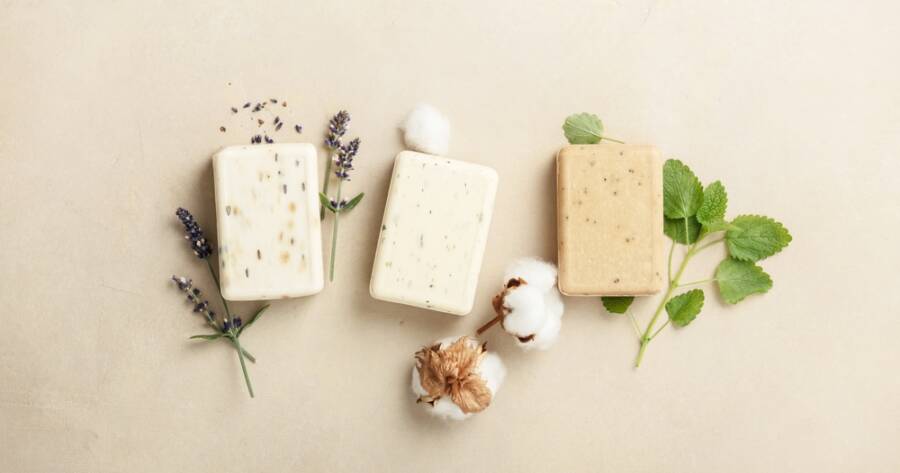Across the European Union, a quiet return to simplicity is shaping the way people care for their skin. Instead of mass-produced products, many are turning to locally-made soaps and balms crafted by artisan brands. Such goods, often rooted in centuries-old techniques and local ingredients, offer a gentle yet effective alternative to synthetic skincare. With a growing interest in sustainability, transparency, and natural wellness, top artisan products represent more than just beauty—they’re a celebration of culture, community, and craft.
France: Lavender Fields and Cold-Pressed Heritage
France has long been celebrated for its perfumery and skincare traditions, but artisan soap-making thrives especially in the southern regions of Provence. Here, small producers continue to craft savon de Marseille using traditional methods—vegetable-based oils like olive or coconut, blended with natural botanicals and hardened in large molds before being hand-cut and stamped.
Brands such as Le Serail and Marius Fabre, though family-owned, are globally respected and deeply local. Their soaps are free from synthetic dyes and use time-honoured recipes dating back generations. French lavender balms, often infused with beeswax and essential oils, are another favourite. These are used for everything from dry hands to sleep support.
While large cities like Paris carry global skincare giants, it’s the village markets of Provence and the apothecaries of Lyon where true artisanal gems are found—each bar or balm offering a unique expression of the land.
Germany and Austria: Alpine Remedies and Herbal Wisdom
In the mountainous regions of Germany and Austria, skincare reflects the natural world—pine forests, wild herbs, and alpine meadows. Artisan brands in these countries often blend old herbal traditions with modern sensitivity, producing high-quality, small-batch soaps and balms from organic or biodynamic farms.
Austrian brands like Tiroler Kräuterhof and Seifenladen Bad Ischl are known for using ingredients like arnica, mountain pine, and calendula. Their soaps are often handcrafted using cold-process methods and contain no artificial fragrances. Balms made in this region frequently include propolis, a resinous compound collected by bees, long valued for its healing and antibacterial properties.
Whether sold in farm shops or small-town wellness stores, these products reflect the clean, herbal aesthetic of alpine living and offer deep nourishment with a minimalist feel.
Portugal and Spain: Olive Oil Traditions and Ocean Breezes
The Iberian Peninsula brings its own coastal flair to artisan skincare. Portuguese and Spanish soaps often rely on high-quality olive oil as a base—an ingredient deeply woven into both cuisine and skincare. In Portugal, brands like Ach. Brito and Castelbel have revived classic soap-making with updated packaging and formulas. Their bars frequently feature local ingredients like eucalyptus, rosemary, and sea salt.
Spain, particularly in Andalusia and Catalonia, has seen a rise in eco-focused artisan brands. These soaps and balms tend to be rustic and earthy, often sold in open-air markets or organic shops. Olive oil, goat milk, and Spanish orange blossom are common ingredients, providing both hydration and gentle scent.
The climate and culinary heritage of these regions influence skincare sensibilities—favouring rich, emollient balms for dry skin, and refreshing, lightly fragrant soaps that reflect the sun-drenched landscape.
The Baltics and the Balkans: Forest Botanicals and Local Beeswax
In Estonia, Latvia, and Lithuania, a deep connection to forest plants and seasonal rhythms shapes artisanal beauty. Brands like Magrada Organic Cosmetics (Estonia) are gaining recognition across the EU for their use of ingredients such as birch sap, juniper berries, and sea buckthorn—harvested sustainably from local forests and coastlines.
In the Balkans, soap and balm-making remains a family tradition in many rural areas. In Croatia and Slovenia, for example, wild herbs such as sage, St. John’s wort, and nettle are infused into oils and salves. Beeswax balms are especially common, made from locally harvested honeycomb and used for everything from lip care to cracked heels.
These products are often sold at farmers’ markets or through cooperatives that support rural artisans and preserve cultural knowledge. They represent not just skincare, but a deeper connection to land and legacy.
A Return to Handmade Wellness
What unites all these locally-made soaps and balms across the European Union is a shared commitment to craft, transparency, and respect for nature. These are not mass-market items designed to sell globally—they are local stories told through scent, texture, and care.
Choosing artisan skincare means choosing sustainability, quality, and often a direct connection with the maker. It’s about simplifying routines, trusting natural ingredients, and finding beauty in tradition. As consumers across the EU continue to seek authenticity in what they buy and how they care for themselves, these small-batch products stand out—not for bold claims, but for the quiet confidence of time-tested ingredients and skilled hands.

